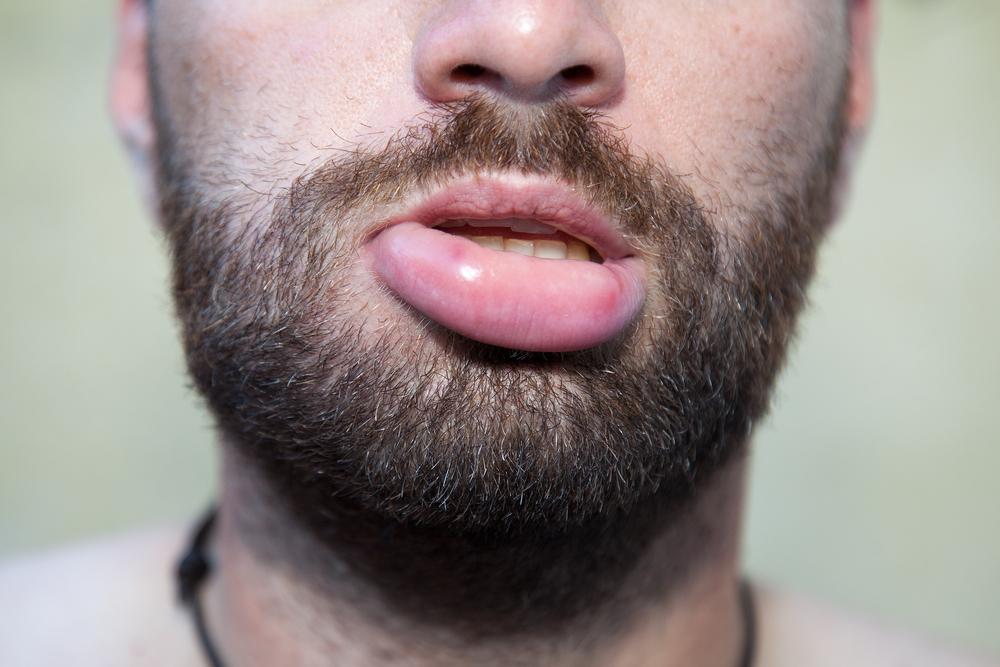ACE Inhibitors are a notorious cause of angioedema. Angioedema is a very serious condition where the lip and upper airway can swell up. It is extremely rare when you consider how many people take ACE Inhibitors. When I think of angioedema happening in practice, I historically thought it would happen quickly (within a few days to weeks) following initiation or increase. Here’s a case where an ACE inhibitor causes angioedema.
A 55 year male had a history of CHF. Blood pressures were not incredibly high, but remained elevated in the upper 150’s/90’s. The primary provider increased enalapril from 10 to 20 mg daily. This increase appeared to be well tolerated without issue for a period of about 3 months. No medication changes had been made in this time period and adherence was known as it was a long term care resident.
After three months without issue, the lip began to swell within a day or two. The ACE Inhibitor was one of the only medication changes within the last 6 months and immediately suspected as the culprit. The enalapril was discontinued and the angioedema resolved quickly. Medication reactions and adverse effects happen most often within hours/days/weeks of changes, but occasionally they may take a while to appear.
New to the blog? Over 2,000 healthcare professionals have taken advantage of this free resource: 30 medication mistakes, a 6 page PDF I put together based upon my experiences as a clinical pharmacist. Check it out now!



There are case reports of ACEI associated angioedema YEARS after starting the drug. Clearly most patients will develop this in less than 3 months, but angioedema might happen as long as 10 years after starting an ACEI
Thanks…
I like the info given as above. Consequently, I do concur with you that indeed ACEI inhibitors can indeed case Angiedema. A case in point is in my reputable institution AIC Kijabe Teaching and Referral Hospital. A similar problem occurred and the patient had a swelling on his lips. Thanks for such informative message.
Which one is frequent dry cough or angiedeme ?
dry cough is more common
Excellent article
I’m a 55 yr old male. I had an Angioedema on Feb.12, 2019. My upper lip swelled to the point of feeling like it might explode. Upon entering the emergency room it was quickly decided this was a due to lisinopril which I had been on for 10 years. Since my initial occurrence I have experienced hives around my eyes lasting for two weeks. An outbreak of hives on my ankles and calves. These incidents occurred with no discomfort. Several months later I experienced bilateral swelling of the penis which lasted approximately two weeks. During this time I stopped all use of aspirin based products and any medication with dyes. Situation cleared. On September 14 my ankles broke out in hives and rapidly spread up to my knees. My left ankle and calf have swollen twice with discomfort and tenderness. All had cleared by this past Friday and all reoccurring on Saturday the 21st. Beginning to become extremely concerned. Please help. I have seen three doctors with little information. This has begun to effect daily living and quality of life. Thanks for any input.